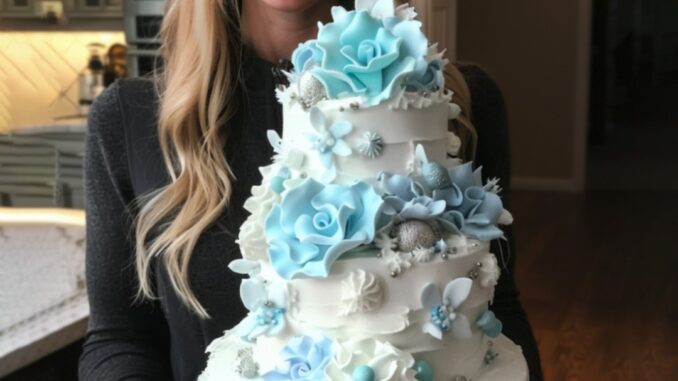My husband, Clark, booked first-class tickets for himself and his mother, leaving me in economy with our kids. You can bet I didn’t just sit back and accept it. Instead, I made sure his so-called “luxury” experience had its share of turbulence, turning it into a lesson he wouldn’t forget anytime soon.

I’m Sophie, and let me give you a little insight into Clark. You know the type—dedicated to work, perpetually stressed, and convinced his job is the sun around which the rest of the world revolves? Sure, I get that work is demanding, but let’s not pretend parenting is a walk in the park. This time, though, Clark really outdid himself. Buckle up, because you won’t believe this.
It was last month when we planned a holiday trip to visit his family. The idea was simple: relax, bond, and create fun memories for the kids. Sounds straightforward, right?
Clark offered to handle the flights, which I thought was a great way to lighten my load. Naively, I trusted him.
Big mistake.

At the airport, juggling our toddler and a diaper bag, I asked casually, “Clark, honey, where are we sitting?” The place was a zoo of families, crying babies, and suit-clad businesspeople sprinting to their gates.
He didn’t even look up from his phone. “Oh, about that…” he muttered.
Instantly, I knew something was off. “What do you mean, ‘about that’?”
Clark finally put his phone away and gave me the sheepish grin I’d come to know—and dread.
“Well,” he began hesitantly, “I managed to snag first-class seats for Mom and me. You know how she hates long flights, and I really need some quiet to rest.”
I stared at him, waiting for the punchline that never came.
“So, let me get this straight,” I said, my voice sharp. “You and your mom are in first class, while I’m back in economy with the kids?”
Clark shrugged, completely unfazed. “Come on, Soph, it’s only a few hours. You’ll be fine. Don’t make this a big deal.”

Before I could respond, his mother, Nadia, swept in with her designer luggage. “Clark! There you are. Are we ready for our luxurious flight?” she said, smirking like she’d just won the lottery.
I watched them waltz off toward the first-class lounge while I was left wrestling two cranky kids and brewing a storm in my head.
“Oh, they’ll have their ‘luxury’ experience, alright,” I muttered, a devilish plan forming.
When we boarded, the disparity between first class and economy was glaring. Clark and Nadia were already sipping champagne in their plush seats, while I was wrestling a carry-on into the overhead bin.
“Mommy, I want to sit with Daddy!” our five-year-old whined.
I forced a smile. “Not this time, sweetie. Daddy and Grandma are sitting in a special part of the plane.”
“Why can’t we sit there too?”

“Because Daddy’s a very special kind of person.”
“What do you mean, Mommy?”
“Nothing, honey. Let’s get you buckled in.”
As I settled the kids, I spotted Clark reclining in his seat, looking like he didn’t have a care in the world. That’s when I remembered: I had his wallet.
Earlier, at security, I’d subtly taken it from his carry-on while he and Nadia were distracted. It wasn’t hard; Clark never pays attention when he’s chatting with his mom.
Now, sitting in economy, a mischievous grin spread across my face. The fun was about to begin.

A couple of hours into the flight, the kids were napping, and I was enjoying some rare peace. That’s when I saw a flight attendant serving gourmet meals in first class. I watched as Clark ordered the most expensive options, complete with top-shelf liquor, indulging himself like a king.
“Would you like anything from the snack cart?” another attendant asked me.
“Just water, thanks,” I replied with a sly smile. “I have a feeling I’m about to enjoy a show.”
Sure enough, about thirty minutes later, Clark started patting his pockets, panic flashing across his face. He gestured wildly at the flight attendant, who was clearly insisting on payment. I couldn’t hear the exchange, but the tension was unmistakable.
Finally, Clark made his way back to economy, his expression a mix of desperation and embarrassment.

“Soph,” he whispered urgently, crouching next to me. “I can’t find my wallet. Do you have any cash?”
Feigning concern, I said, “Oh no! That’s awful! How much do you need?”
“Uh… about $1500,” he muttered.
I nearly choked on my water. “Fifteen hundred? What did you order, a diamond-encrusted steak?”
“Please, Soph, this isn’t funny!” he hissed. “Do you have it or not?”
I made a show of rummaging through my purse. “Let’s see… I have $200. Will that help?”
His face fell. “It’s better than nothing, I guess. Thanks.”
As he turned to leave, I called out, “Hey, doesn’t your mom have her card? Maybe she can help!”
The horror on his face was priceless. He knew asking Nadia would mean admitting his failure.

The rest of the flight was hilariously awkward. Clark and Nadia sat in stony silence, their first-class experience thoroughly ruined. Meanwhile, I enjoyed my economy seat with a sense of victory.
As we began our descent, Clark returned one last time.
“Soph, are you sure you haven’t seen my wallet?”
Feigning innocence, I replied, “No, honey. Maybe you left it at home?”
He sighed, running a hand through his hair. “This is a nightmare.”
I patted his arm sympathetically. “Well, at least you got to enjoy first class, right?”
The glare he gave me could’ve curdled milk.

After landing, Nadia disappeared into the restroom, leaving Clark fuming.
“I can’t believe I lost my wallet,” he muttered for the tenth time.
“Are you sure it didn’t fall out during one of those fancy meals?” I teased.
“Very funny, Soph.”
As we left the airport, I zipped my purse shut, Clark’s wallet safely tucked inside. I’d return it eventually—after treating myself to something nice.
So, travelers, if your partner ever tries to leave you behind for first class, remember: a little creative justice goes a long way! After all, in life’s journey, we’re all in it together—first class or economy.



 ,” the mistress had written, accompanied by photos of her and Tom at the party.
,” the mistress had written, accompanied by photos of her and Tom at the party.